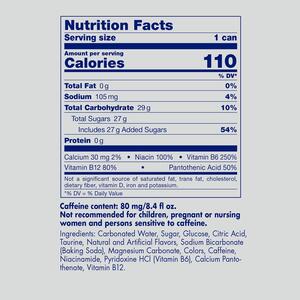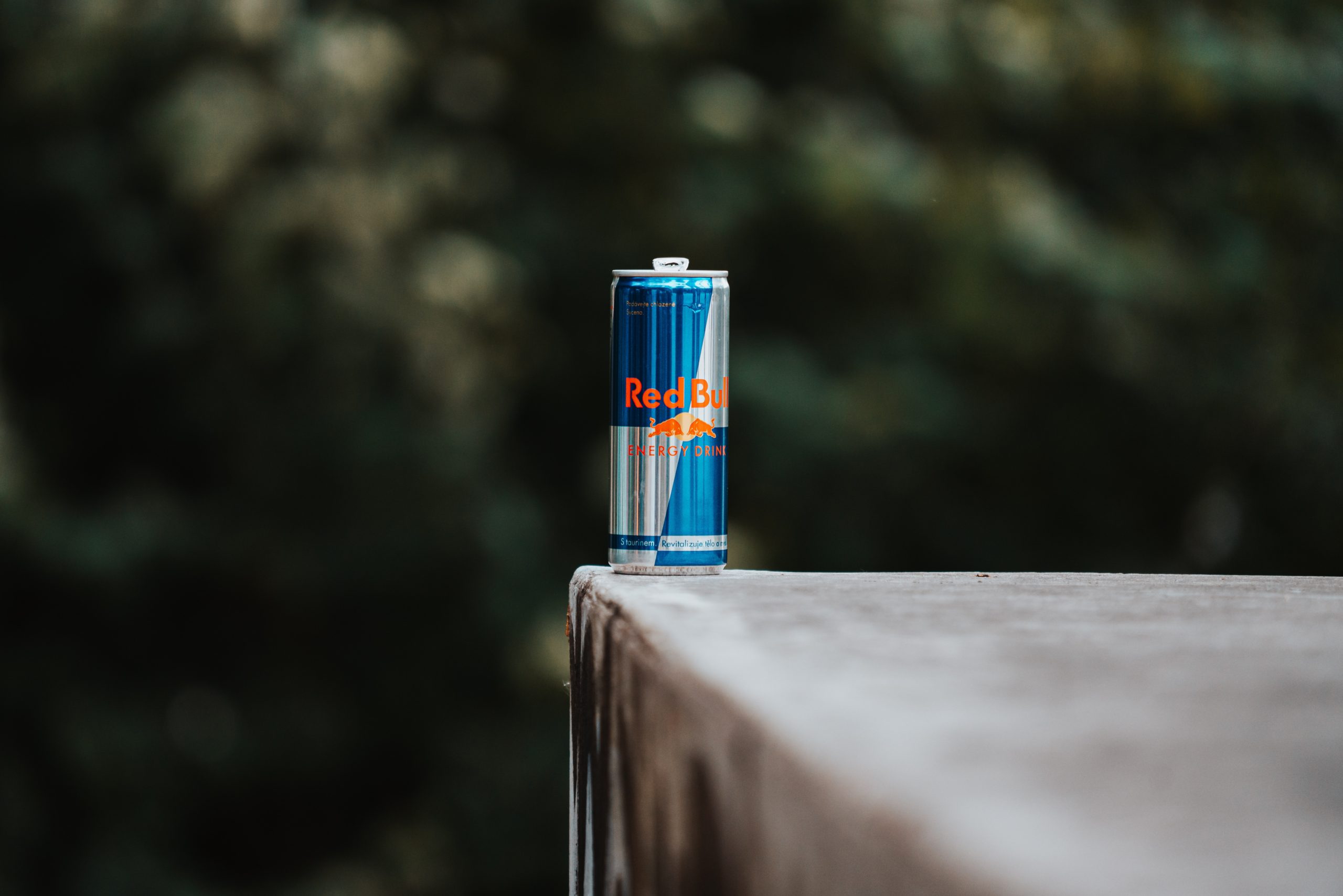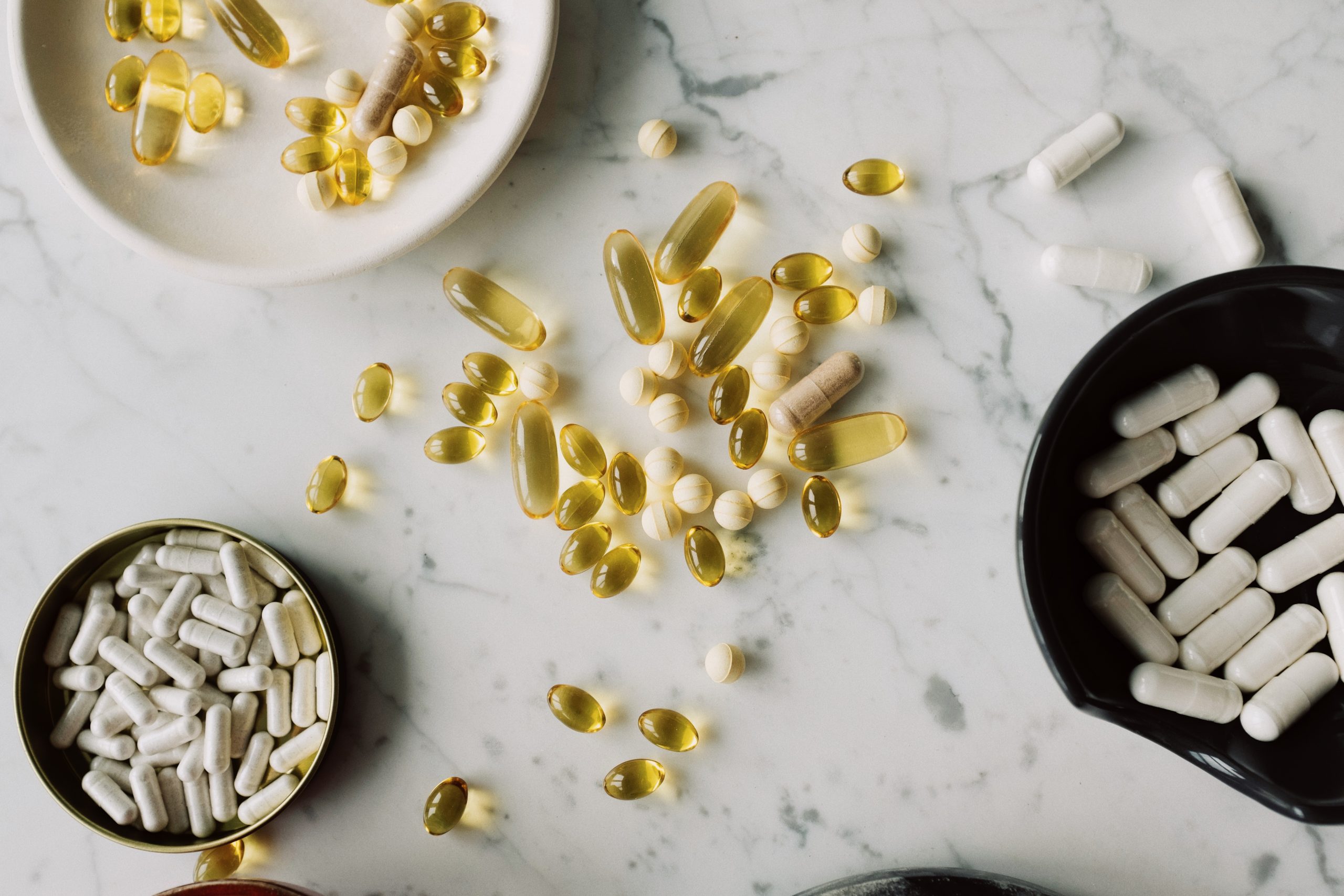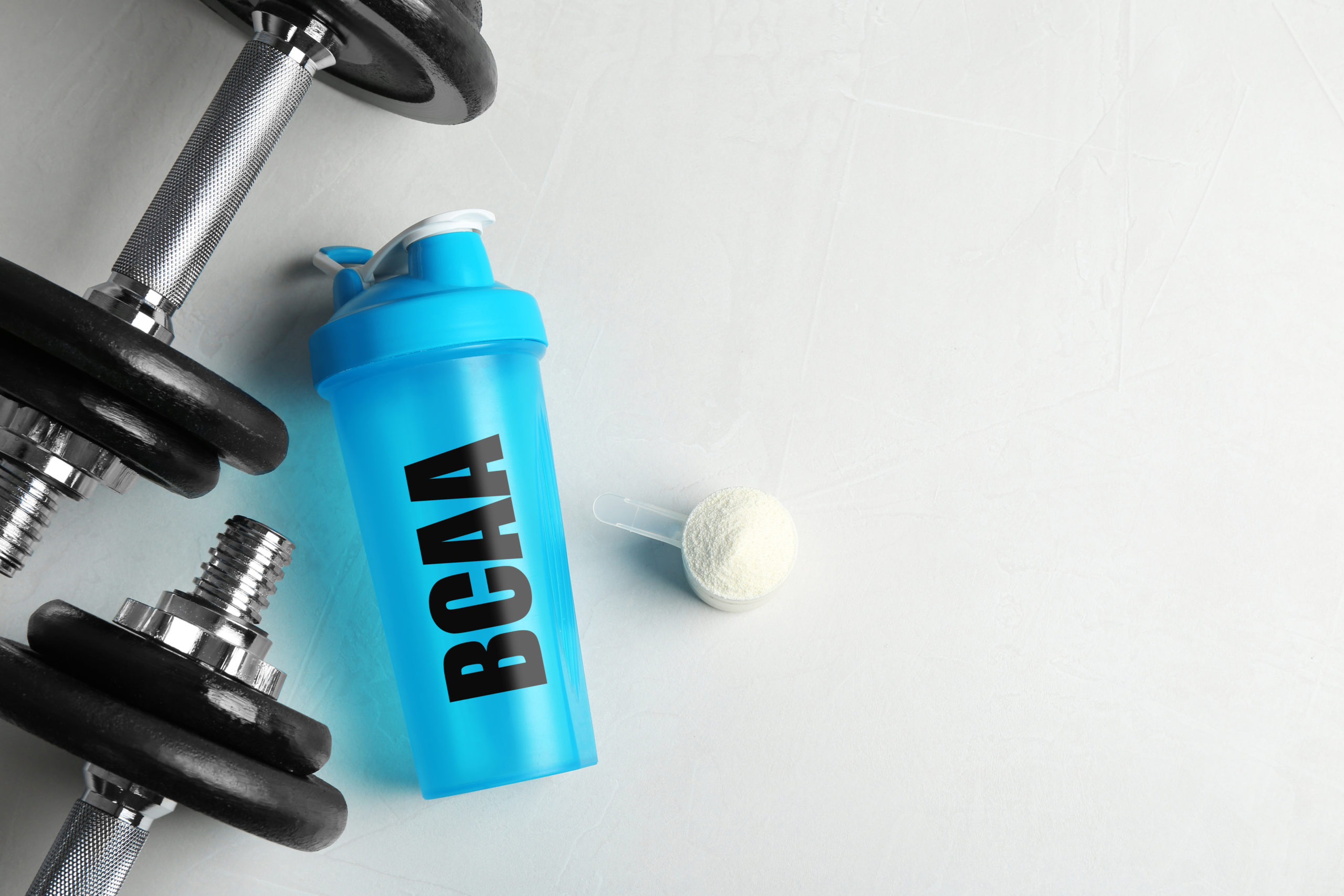The consensus: While the caffeine and taurine in Red Bull can give you improved focus in the gym, studies have shown regular consumption of Red Bull can lead to adverse health effects. We encourage our readers to consume all supplements in moderation, and consult with a doctor or physician before starting any fitness supplement.
What is Red Bull?
Red Bull is the best selling energy drink in the world, selling over 7.9 Billion cans each year (as of 2020). Besides the obvious carbonated water and sugar prevalent in most every energy drink, Red Bull also contains a mix of caffeine, taurine, and B vitamins that help promote wakefulness and energy. For a full breakdown of nutrients prevalent, see a typical Red Bull’s nutrition label below:

How might Red Bull improve gym performance?
You’ve had a long day. It feels like you can’t quite muster up the energy to make it to the gym, but you know how much better you’ll feel after your workout. You decide you are going to treat yourself to a bit of extra caffeine today to make it through and head to the gas station to grab your pick-me-up. As you walk in the door, there it is: the red and yellow glowing Red Bull fridge. From the hundreds of millions of dollars Red Bull spends on advertising each year, you have come to associate the brand with energy and excitement. Their tagline, “Red Bull gives you wings”, encourages a feeling of vigor and vitality.
As you take your first few sips, that vitality begins rushing through your veins, primarily in the form of caffeine. The popular stimulant begins instantly increasing activity in your brain and nervous system making you feel alert and ready to tackle what is ahead of you. Despite this alertness, Red Bull lack many of the other popular pre-workout ingredients, such as creatine, beta-alenine, and BCAAs.
The goal of pre-workouts
Pre-workouts are marketed as being able to help you lift more weight, but they don’t actually do that.
The goal of pre-workouts is to make your muscles more sensitive to the effects of adrenaline. This means that your heart rate will increase and your blood will flow more easily, which in turn means that you can work out harder and longer.
How energy drinks can improve performance
The effects of energy drink pre-workout are not immediate. It takes about 20 minutes for the caffeine to kick in. Once it does, you will be able to exercise longer and with more intensity than if you didn’t drink the energy drink beforehand.
The benefits of drinking energy drinks before a workout are clear. But, there is also a downside to them. Energy drinks can cause dehydration, which can lead to dizziness, headaches, and even vomiting.
The difference between pre-workouts and energy drinks
Pre-workouts are different from energy drinks as they are designed to give a boost to your workout and not just your energy levels. They contain ingredients that help you get the most out of your workout, such as beta-alanine, creatine, caffeine and nitric oxide.
Effects of regular consumption of energy drinks
Energy drinks are very popular nowadays. They are often used by people who are looking for a boost of energy, or as a replacement for coffee.
The negative effects of energy drinks depend on the amount consumed, but they can include:
- Increase in blood pressure
- Increased risk of heart attack
- Reduced concentration and memory
- Dizziness
- Nausea and vomiting
- Headaches
Energy drinks are a $14 billion industry. They are marketed to young people who are looking for an energy boost, but the long-term effects of energy drinks can be detrimental to their health.
The negative effects of energy drinks can range from insomnia and anxiety to obesity and heart problems. There is also a risk of addiction, as young people may drink too many energy drinks over time.
Energy drinks have a lot of side effects that can be detrimental to your health. The long-term effects of these beverages can lead to health problems such as obesity, heart problems, and addiction.





